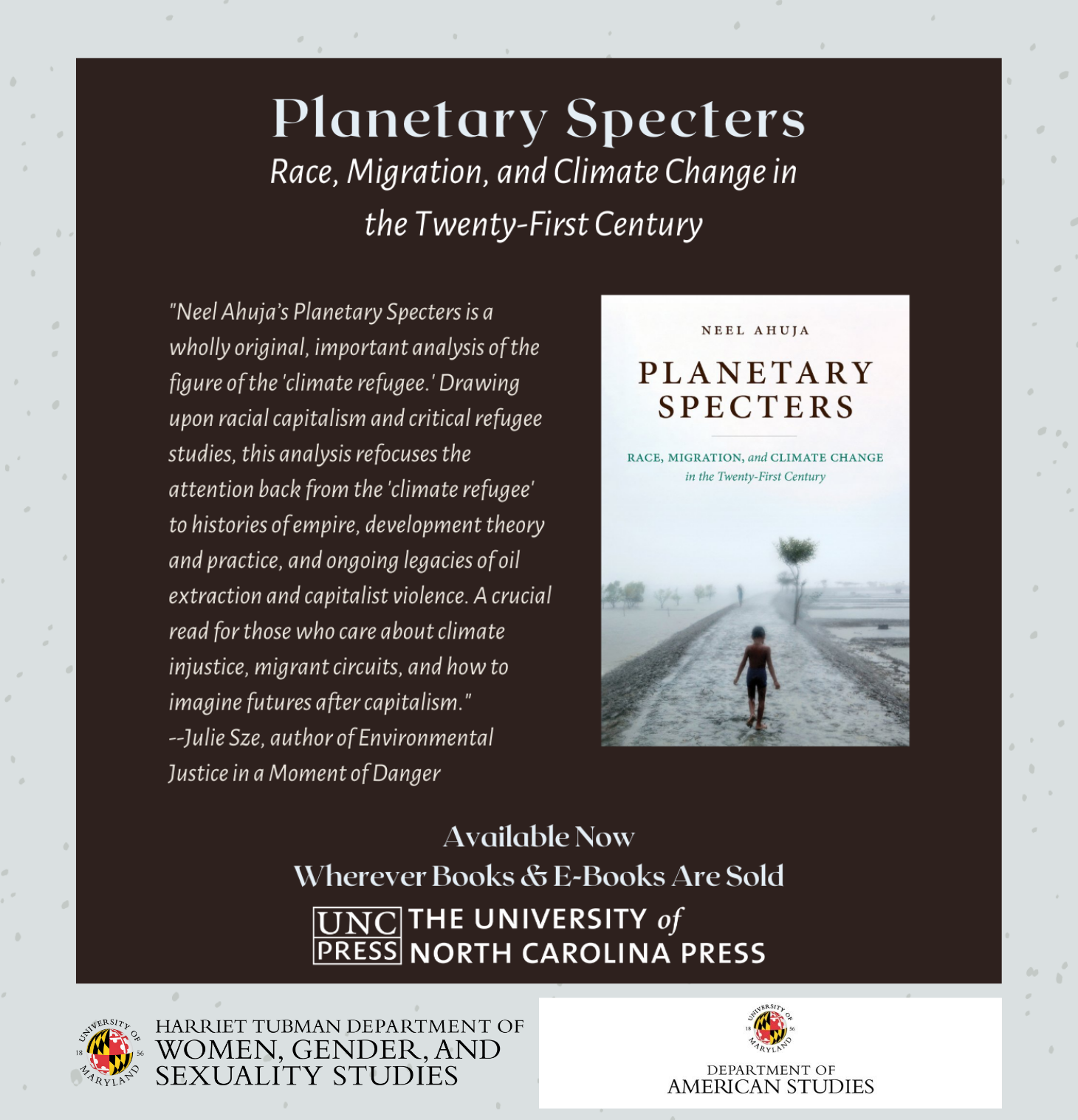Book Launch for Neel Ahuja's Planetary Specters Nov. 15, 3pm
November 05, 2021

Please join us to celebrate Dr. Ahuja's book release for Planetary Specters: Race, Migration, and Climate Change in the Twenty-First Century
The Harriet Tubman Department of Women, Gender, and Sexuality Studies and Department of American Studies are excited to celebrate Neel Ahuja's new book Planetary Specters: Race, Migration, and Climate Change in the Twenty-First Century.
Please join us on November 15th at 3pm for a Zoom book launch with commentaries by Renisa Mawani, Professor of Sociology at University of British Columbia and Priscilla Wald, Professor of English at Duke University
Register for the event at https://ter.ps/AhujaNov15
Learn more about the book at the book's UNC Press page
"As the planet continues hurtling toward disaster at breakneck speed, Ahuja presents a convincing framework for understanding environmental racism."—Scientific American (Full review here)
"Neel Ahuja’s Planetary Specters is a wholly original, important analysis of the figure of the 'climate refugee.' Drawing upon racial capitalism and critical refugee studies, this analysis refocuses the attention back from the 'climate refugee' to histories of empire, development theory and practice, and ongoing legacies of oil extraction and capitalist violence. A crucial read for those who care about climate injustice, migrant circuits, and how to imagine futures after capitalism."--Julie Sze, author of Environmental Justice in a Moment of Danger
"This is an outstanding book. The breadth of its discussion--particularly the geographical regions and historical periods under study--is impressive. Neel Ahuja makes a critical intervention into ongoing discussions of migration, climate change, and war, asking us to pause and to ask: what are the conditions in which people are forced to move, and how are these conditions historically produced?"--Renisa Mawani, author of Across Oceans of Law: The Komagata Maru and Jurisdiction in the Time of Empire
"Vast research and careful analysis has gone into this book. It is clearly written and forcefully argued, and it is a tremendously important and compelling work that should be read by anyone who wants to understand climate change."--Priscilla Wald, author of Contagious: Cultures, Carriers, and the Outbreak Narrative

